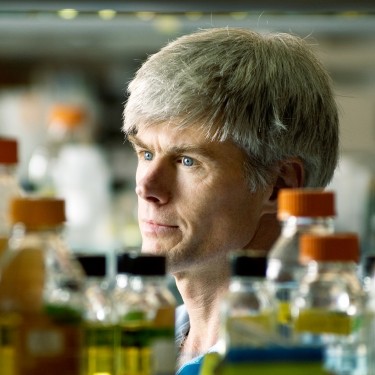
Research Interests
Antibiotic resistance, Enzymes, Gene Regulation and Expression, Genomics, Infectious diseases, Metabolomics, Microbiomics, Microorganisms, Steroids
Research Focus Teams
Tuberculosis, Ecosystem Health
Departments
Contact
Email: lindsay.eltis@ubc.ca
Office Phone: 604–822–0042
Publications
Lab Website
Lindsay obtained his PhD in Biochemistry in 1989 studying interactions between metalloproteins. His interest in bacterial catabolic enzymes and pathways began during his postdoctoral studies in Germany, when he studied enzymes involved in the degradation of polychlorinated biphenyls (PCBs). His primary research interest is bacterial enzymes and pathways responsible for the degradation of aromatic compounds and steroids. The author of over 140 peer-reviewed, original research papers, he uses a wide variety of approaches to gain novel insights into the molecular basis of these catabolic processes. His most significant contributions have changed the way we think about how important classes of enzymes work and how certain pathogens survive in their hosts. Lindsay’s research has important implications for the development of novel biocatalysts for more sustainable processes as well as the development of novel therapeutics. In 2014, Lindsay was awarded a Canada Research Chair in Microbial Catabolism and Biocatalysis.
Microbial catabolic activities underpin life on our planet. On the global scale, these enzymes and pathways are essential to the carbon cycle of the biosphere. They also maintain the health of all ecosystems ranging from ocean and forest environments to the different parts of the human body. Microorganisms have evolved an astoundingly versatile armamentarium of enzymes to degrade the vast array of compounds that occur in the biosphere. As a rich source of biocatalysts, microbial catabolic activities are of burgeoning importance for the sustainability of the agricultural, food, textile, pharmaceutical and chemical industries. In pathogens, catabolic activities that play essential roles in the infection process provide potential targets for novel therapeutics, which are urgently needed in this era of increasing antibiotic resistance. The enormous diversity and importance of microbial catabolic activities are being revealed through high-throughput sequencing and related projects. However, our understanding of the molecular basis of these activities lags far behind as reflected by the huge number of poorly-annotated genes in microbial databases. Linking sequence to function is essential for understanding microbial catabolic activities and for exploiting their ability to transform substrates into less toxic compounds or economically useful products that are otherwise difficult to synthesize.
One group of bacteria that catabolises a particularly broad range of organic compounds is the mycolic acid-containing Actinobacteria, including Mycobacterium and Rhodococcus. Accordingly, these bacteria have considerable biotechnological potential. Indeed, the most commercially successful microbial transformation involves the use of a Rhodococcus to produce acrylamide. These bacteria also include Mycobacterium tuberculosis (Mtb), responsible for ~1.3 million deaths annually, making it the leading cause of mortality from bacterial infections. Our studies have provided pioneering insights into the catabolism of aromatic compounds and steroids by Actinobacteria, including the organization of these catabolic pathways, the discovery of a cholesterol catabolic pathway in Mtb, and the first characterization of a bacterial lignin-degrading enzyme. These findings have important implications for applications ranging from biocatalysts to novel therapeutics.
Objectives: The overarching theme of our research is the bacterial catabolism of two classes of organic compounds: lignins and steroids. The fundamental objectives are to understand the logic of catabolic pathways involved and the mechanisms of key catabolic enzymes. The practical objectives include developing novel therapeutics and biocatalysts. The research on steroid catabolism is aimed at elucidating the steps of cholesterol catabolism in Mtb and determining its role in virulence, including the influence of steroid metabolites on the host. In elucidating catabolic steps, we are investigating the catalytic mechanism of steroid-ring cleaving enzymes. This research runs in parallel to a collaborative program aimed at characterizing inhibitors of cholesterol catabolism as potential therapeutics. The research on lignin catabolism is aimed at characterizing enzymes involved in lignin depolymerization and catabolism, and developing Rhodococcus as a platform for engineering lignin-degrading biocatalysts. Such biocatalysts will be used to improve the carbon efficiency and economics of production of lignocellulose-derived products. The objectives are being pursued using multidisciplinary approaches drawn from biochemistry, molecular genetics, microbiology, chemical biology, structural biology and genomics.
Visit the lab website for more detail: https://mbim.ubc.ca/people/faculty/lindsay-eltis